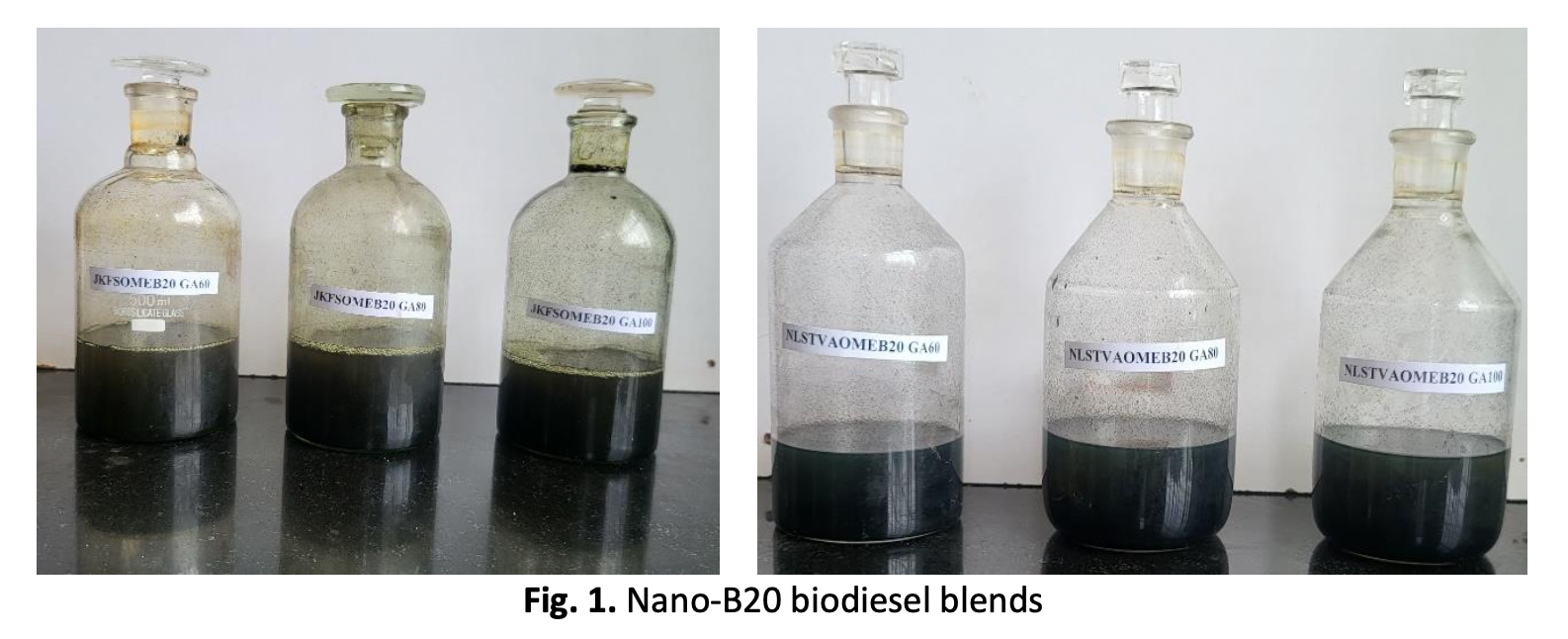Effect of Injection Timing on the Dual Fuel Engine Performance Operated with Hydrogen and Nano-Biodiesel Blends
DOI:
https://doi.org/10.37934/arfmts.114.1.1329Keywords:
Nigella sativa oil methyl ester (NLSTVAOME), jack fruit seed oil methyl ester (JKFSOME), hydrogen, CFD analysis, carburetor, manifold induction, emissions, peak pressureAbstract
In the current work, effect of nano-biodiesel blends and injection timing on the performance of hydrogen fueled dual fuel (DF) engine is presented. Hydrogen flow rate is maintained constant with a flow rate of 0.15 kg/h. For this B20 and nano-blends of Nigella sativa oil methyl ester (NLSTVAOME) and Jack fruit seed oil methyl ester (JKFSOME) fuel combinations are used. Nano-blends of respective B20 biodiesels are prepared using graphene amine (GA) nanoparticles with varied proportions ranging from 60 to 100 ppm using probe sonication method. Stabilization of the nano-blends are ensured with reference to quantity of nanoparticle, surfactant SDS (Sodium Dodecyl Sulfate) used and sonication time. Addition of the nanoparticles in the B20 biodiesel blends till 80 ppm showed considerable improvements on the performance of diesel engine with single fuel operation due to improved combustion compared to B20 biodiesel blends. Beyond 80 ppm the performance deteriorated due to non-homogeneous mixtures of nano-biodiesel blends. Injection timing (IT) for the modified DF engine IT is varied from 19 to 31oBTDC in steps of 4oBTDC. Further advancing the IT from 19 to 27oBTDC showed improved dual fuel engine performance with B20+GA80 blends of both biodiesels along with hydrogen induction when compared to B20 operation. Further mixing of air-hydrogen in the inlet manifold of dual fuel engine is studied using CFD analysis for varied hydrogen flow rates ranging from 0.10 to 0.2 kg/h in steps of 0.05 kg/h.
Downloads
































